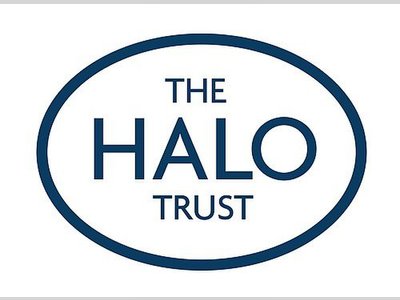British Heritage
Remember, Cherish, Learn.
beta
Centrepoint
A Pillar of British Heritage and Champion for Youth Empowerment.
For more than half a century, Centrepoint has been a beacon of hope for vulnerable young people in the United Kingdom. By providing accommodation, support services, and platforms for empowerment, Centrepoint has played a pivotal role in safeguarding British society's most vulnerable demographic – the homeless youth. The organisation's contributions towards fostering social justice, human compassion, and resilience among the homeless population have left an indelible imprint on British heritage.
Centrepoint was born from the compassionate and pioneering vision of Kenneth Leech, an Anglo-Catholic socialist priest. With his profound sensitivity towards societal inequalities and a commitment to uplifting those in dire circumstances, Leech founded the charity on 16 December 1969. The organisation's first refuge was a modest shelter established in a Soho church.
The choice of name, Centrepoint, was far from arbitrary. It was a direct response to the controversial Centre Point building, which stood empty as a symbol of stark disparity and affront to the homeless while being a lucrative asset for its developer. Thus, the name Centrepoint epitomised Leech's defiance of socio-economic imbalances and his dedication to championing the cause of homelessness.
Centrepoint underwent a significant evolution in 1986, thanks to a serendipitous encounter between city broker Richard Lester and a homeless man, Martin Shaw. Touched by Shaw's predicament, Lester donated £5,000, a sum Shaw utilized to initiate Centrepoint's first dedicated hostel. Offering over 100 beds, this hostel marked the charity's expansion into a more structured approach towards homelessness.
By October 2005, Centrepoint had broadened its geographical reach beyond London, opening an accommodation service in Consett, County Durham. This significant milestone marked the start of Centrepoint's nationwide influence.
Centrepoint's efforts have been marked by the notable patronage of the British Royal Family. Diana, Princess of Wales, was an esteemed patron of the organisation, championing its cause until her untimely death. Her passionate involvement set a precedent for royal support, which continues to this day with her son, Prince William, Duke of Cambridge, assuming the patronage in 2005 – his first such commitment.
Over the decades, Centrepoint has diversified and broadened its services to provide multifaceted support to homeless young people aged between 16 and 25. Its repertoire of services extends beyond providing refuge through emergency night shelters, short and long-stay hostels. The charity caters to various subgroups within the homeless community, running specialist projects for care leavers, ex-offenders, young single parents, foyers, supported flats, and floating support services.
Centrepoint currently operates approximately 1,200 bed spaces throughout the nation. But its intervention goes beyond providing a safe space to sleep. The organisation runs extensive support services, including a skills and employability team that helps young people transition back into education, training, or employment. It also offers mental health support, critical to rebuilding the lives of those who have faced the harsh realities of homelessness.
One of Centrepoint's most innovative strategies is its mentoring scheme. Pairing a young person with a mentor for 12 months, it cultivates long-term, supportive relationships that extend beyond immediate crisis management. This approach underscores the charity's dedication to holistic and sustainable interventions.
The charity's impact has been amplified by a roster of high-profile ambassadors who use their platforms to increase awareness about homelessness and Centrepoint's work. These include Radio 1 DJ Sara Cox, fashion model Lady Kitty Spencer, actress Lisa Maxwell, and journalist and presenter Kirsty Young.
Centrepoint's legacy lies not just in the thousands of young people it has sheltered and guided over the years, but also in its ceaseless efforts to shed light on the issue of homelessness. The charity has succeeded in giving a voice to the homeless youth, reshaping public perception and informing policy.
In its unwavering commitment to homeless youth, Centrepoint has etched itself into British heritage as a symbol of compassion, resilience, and social justice. Through each young life it transforms, it continues to enrich the fabric of British society, reminding us all of the enduring power of kindness and our shared responsibility to care for the less fortunate.
Origins and Evolution
Centrepoint was born from the compassionate and pioneering vision of Kenneth Leech, an Anglo-Catholic socialist priest. With his profound sensitivity towards societal inequalities and a commitment to uplifting those in dire circumstances, Leech founded the charity on 16 December 1969. The organisation's first refuge was a modest shelter established in a Soho church.
The choice of name, Centrepoint, was far from arbitrary. It was a direct response to the controversial Centre Point building, which stood empty as a symbol of stark disparity and affront to the homeless while being a lucrative asset for its developer. Thus, the name Centrepoint epitomised Leech's defiance of socio-economic imbalances and his dedication to championing the cause of homelessness.
Centrepoint underwent a significant evolution in 1986, thanks to a serendipitous encounter between city broker Richard Lester and a homeless man, Martin Shaw. Touched by Shaw's predicament, Lester donated £5,000, a sum Shaw utilized to initiate Centrepoint's first dedicated hostel. Offering over 100 beds, this hostel marked the charity's expansion into a more structured approach towards homelessness.
By October 2005, Centrepoint had broadened its geographical reach beyond London, opening an accommodation service in Consett, County Durham. This significant milestone marked the start of Centrepoint's nationwide influence.
A Royal Patronage
Centrepoint's efforts have been marked by the notable patronage of the British Royal Family. Diana, Princess of Wales, was an esteemed patron of the organisation, championing its cause until her untimely death. Her passionate involvement set a precedent for royal support, which continues to this day with her son, Prince William, Duke of Cambridge, assuming the patronage in 2005 – his first such commitment.
Spectrum of Services and Impact
Over the decades, Centrepoint has diversified and broadened its services to provide multifaceted support to homeless young people aged between 16 and 25. Its repertoire of services extends beyond providing refuge through emergency night shelters, short and long-stay hostels. The charity caters to various subgroups within the homeless community, running specialist projects for care leavers, ex-offenders, young single parents, foyers, supported flats, and floating support services.
Centrepoint currently operates approximately 1,200 bed spaces throughout the nation. But its intervention goes beyond providing a safe space to sleep. The organisation runs extensive support services, including a skills and employability team that helps young people transition back into education, training, or employment. It also offers mental health support, critical to rebuilding the lives of those who have faced the harsh realities of homelessness.
One of Centrepoint's most innovative strategies is its mentoring scheme. Pairing a young person with a mentor for 12 months, it cultivates long-term, supportive relationships that extend beyond immediate crisis management. This approach underscores the charity's dedication to holistic and sustainable interventions.
The charity's impact has been amplified by a roster of high-profile ambassadors who use their platforms to increase awareness about homelessness and Centrepoint's work. These include Radio 1 DJ Sara Cox, fashion model Lady Kitty Spencer, actress Lisa Maxwell, and journalist and presenter Kirsty Young.
Centrepoint's Legacy
Centrepoint's legacy lies not just in the thousands of young people it has sheltered and guided over the years, but also in its ceaseless efforts to shed light on the issue of homelessness. The charity has succeeded in giving a voice to the homeless youth, reshaping public perception and informing policy.
In its unwavering commitment to homeless youth, Centrepoint has etched itself into British heritage as a symbol of compassion, resilience, and social justice. Through each young life it transforms, it continues to enrich the fabric of British society, reminding us all of the enduring power of kindness and our shared responsibility to care for the less fortunate.
- Centrepoint (charity)en.wikipedia.org




